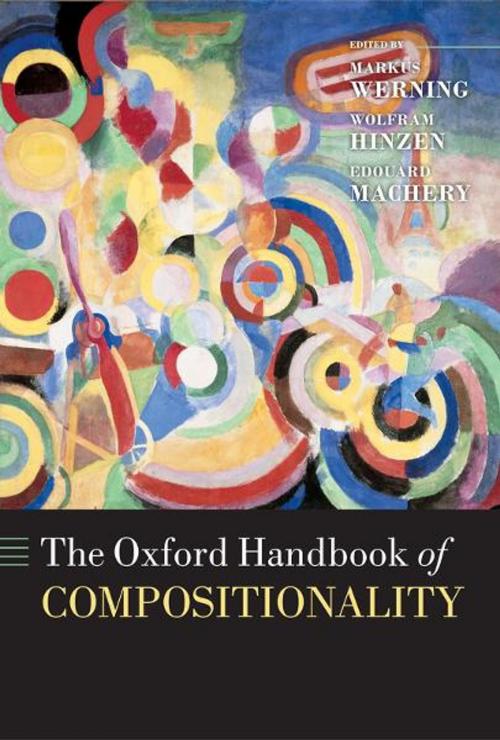The Oxford Handbook of Compositionality
Nonfiction, Reference & Language, Language Arts, Linguistics, Religion & Spirituality, Philosophy| Author: | ISBN: | 9780191633300 | |
| Publisher: | OUP Oxford | Publication: | February 9, 2012 |
| Imprint: | OUP Oxford | Language: | English |
| Author: | |
| ISBN: | 9780191633300 |
| Publisher: | OUP Oxford |
| Publication: | February 9, 2012 |
| Imprint: | OUP Oxford |
| Language: | English |
In this book leading scholars from every relevant field report on all aspects of compositionality, the notion that the meaning of an expression can be derived from its parts. Understanding how compositionality works is a central element of syntactic and semantic analysis and a challenge for models of cognition. It is a key concept in linguistics and philosophy and in the cognitive sciences more generally, and is without question one of the most exciting fields in the study of language and mind. The authors of this book report critically on lines of research in different disciplines, revealing the connections between them and highlighting current problems and opportunities. The force and justification of compositionality have long been contentious. First proposed by Frege as the notion that the meaning of an expression is generally determined by the meaning and syntax of its components, it has since been deployed as a constraint on the relation between theories of syntax and semantics, as a means of analysis, and more recently as underlying the structures of representational systems, such as computer programs and neural architectures. The Oxford Handbook of Compositionality explores these and many other dimensions of this challenging field. It will appeal to researchers and advanced students in linguistics and philosophy and to everyone concerned with the study of language and cognition including those working in neuroscience, computational science, and bio-informatics.
In this book leading scholars from every relevant field report on all aspects of compositionality, the notion that the meaning of an expression can be derived from its parts. Understanding how compositionality works is a central element of syntactic and semantic analysis and a challenge for models of cognition. It is a key concept in linguistics and philosophy and in the cognitive sciences more generally, and is without question one of the most exciting fields in the study of language and mind. The authors of this book report critically on lines of research in different disciplines, revealing the connections between them and highlighting current problems and opportunities. The force and justification of compositionality have long been contentious. First proposed by Frege as the notion that the meaning of an expression is generally determined by the meaning and syntax of its components, it has since been deployed as a constraint on the relation between theories of syntax and semantics, as a means of analysis, and more recently as underlying the structures of representational systems, such as computer programs and neural architectures. The Oxford Handbook of Compositionality explores these and many other dimensions of this challenging field. It will appeal to researchers and advanced students in linguistics and philosophy and to everyone concerned with the study of language and cognition including those working in neuroscience, computational science, and bio-informatics.















